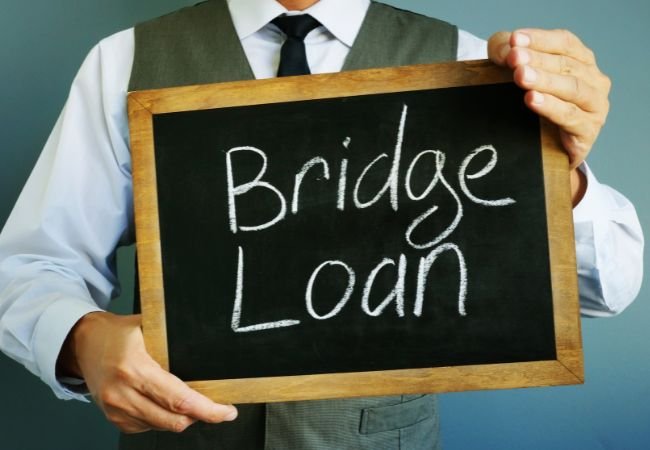Are you in the market for a new property but don’t have the funds to cover the full purchase price just yet? A bridge loan for real estate might be the solution you’re looking for!
But first, let’s define exactly what a bridge loan is. A bridge loan (also known as a swing loan or gap financing) is a short-term loan used to “bridge the gap” between the purchase of a new property and the sale of an existing one. Essentially, it’s a way to buy a new property before you’ve sold your old one and have the cash to do so.
Now, let’s dive into some of the nitty-gritty details of bridge loans for real estate.
Table of Contents
- What are the terms of a bridge loan?
- What Is a Bridge Loan
- Who is eligible for a bridge loan?
- How do I use a bridge loan to buy a new property?
- What are the pros and cons of using a bridge loan for real estate?
- Is a bridge loan right for me?
- In conclusion
- Home equity line of credit (HELOC)
- Seller financing
- Rent-to-own agreement
- Wraparound mortgage
- Final thoughts
What are the terms of a bridge loan?
The terms of a bridge loan can vary, but typically they last anywhere from a few months to a year. The length of the loan depends on how quickly you expect to sell your current property and pay off the loan. Interest rates on bridge loans are also typically higher than traditional mortgage rates since they are considered higher risk for lenders.
What Is a Bridge Loan
A bridge loan is a type of short-term financing designed to fill the gap between the purchase of a new property and the sale of an existing one. This is particularly useful for situations where you want to buy a new property before selling your current one, as you may not have the funds from the sale to use for your new home’s down payment. By providing temporary funding, bridge loans can help you secure your dream property and ease the financial burden of owning two properties simultaneously.
Who is eligible for a bridge loan?
In order to qualify for a bridge loan, you’ll need to have a solid credit score and a clear plan for paying off the loan. Lenders will also want to see that you have a reasonable amount of equity in your current property, as well as a good chance of selling it for a profit.
How do I use a bridge loan to buy a new property?
If you’ve found a new property that you want to purchase but don’t have the funds to cover the full price just yet, you can use a bridge loan to finance the purchase. Once you’ve been approved for a bridge loan, you can use the funds to make a down payment on the new property and secure it while you work on selling your old one.
What are the pros and cons of using a bridge loan for real estate?
Like any financial decision, there are pros and cons to using a bridge loan to finance a real estate purchase. Some of the pros include:
- Allows you to purchase a new property before you’ve sold your old one
- It can be a good option if you need to move quickly and don’t have the cash on hand to make a full purchase
However, there are also some cons to consider:
- Higher interest rates than traditional mortgages
- Short repayment period, which means you’ll need to sell your old property and pay off the loan quickly
- Higher risk for lenders, which may make it harder to qualify for a loan
Is a bridge loan right for me?
Deciding whether a bridge loan is the right financial choice for you ultimately depends on your individual situation. If you have a solid plan for selling your old property and paying off the loan, and you need to move quickly to purchase a new one, a bridge loan could be a good option.
However, if you’re not confident in your ability to sell your old property quickly or pay off the loan, it might be best to hold off on purchasing a new property until you have the cash on hand.
In conclusion
A bridge loan for real estate can be a useful tool for those who need to purchase a new property before they’ve sold their old one. However, it’s important to consider the terms of the loan carefully and whether it’s a financially viable option for your individual situation. As always, it’s a good idea to consult with a financial advisor or real estate agent before making any significant financial decisions.
It’s worth noting that a bridge loan is not the only option for financing a real estate purchase while you’re still in the process of selling your old property. Here are a few other options to consider:
Home equity line of credit (HELOC)
A HELOC is a type of loan that allows you to borrow against the equity in your current property. Essentially, you can use the equity you’ve built up in your home as collateral for a new loan. One of the benefits of a HELOC is that you only have to pay interest on the amount you borrow, rather than the full loan amount. However, it’s important to note that if you default on the loan, you could potentially lose your home.
Seller financing
If the seller of the property you’re interested in is willing, they may be open to financing the sale themselves. This means that rather than getting a traditional mortgage or a bridge loan, you’ll make payments directly to the seller until the property is paid off. Seller financing can be a good option if you have a hard time qualifying for a traditional mortgage, but it’s important to carefully consider the terms of the agreement and get everything in writing.
Rent-to-own agreement
A rent-to-own agreement (also known as a lease-purchase agreement) allows you to rent a property with the option to purchase it at a later date. This can be a good option if you’re not quite ready to commit to a mortgage but want the opportunity to eventually own the property. With a rent-to-own agreement, you’ll typically make a down payment and then pay rent on the property until you’re ready to buy it. It’s important to carefully review the terms of the agreement and understand your responsibilities as a tenant and potential buyer.
Wraparound mortgage
A wraparound mortgage is a type of financing in which the lender assumes responsibility for an existing mortgage on a property. Essentially, the lender takes over the payments on the existing mortgage and adds a new mortgage on top of it. This can be a good option if you’re having trouble qualifying for a traditional mortgage but have a good credit history and a solid plan for paying off the loan.
Final thoughts
A bridge loan can be a useful tool for financing a real estate purchase if you have a solid plan for selling your old property and paying off the loan. However, it’s important to consider the terms of the loan carefully and whether it’s the right financial choice for your individual situation.
There are also several other options to consider, including a HELOC, seller financing, a rent-to-own agreement, and a wraparound mortgage. As always, it’s a good idea to consult with a financial advisor or real estate agent before making any big financial decisions.









